Table of Contents Show
I. Introduction
AI (artificial intelligence) is improving our lives and becoming more helpful in ways we never thought possible. AI is used in many fields, from self-driving cars to chatbots and image recognition. The mass effect of AI is unignorable. “AI’s effect on the economy and AI’s effect on jobs” is a topic of discussion in several places. We have already read about the impact of AI on society. In this article, we will talk about the “AI Effect.” We will dive into the different parts of AI, such as the four types of AI, examples from the real world, ethical concerns, and the effect of AI on jobs. We will explore the possibilities of AI in the future, and how it can help society.
AI Effect and its importance in today’s world
AI is the ability of robots to learn and reason as people do. This expansive and diverse area includes machine learning, natural language processing, computer vision, and other fields.
AI’s importance has risen like a rocket due to the exponential rise of computing power. These advancements have allowed machines to process and analyze massive volumes of data. This research is greatly improving AI’s ability to predict and make decisions.
AI is finding widespread application, from the medical and financial sectors to the transportation and retail sectors. It’s being put to work, automating processes, boosting judgment, and enriching customer interactions. The financial sector uses AI for fraud detection and risk management. On the other hand, the healthcare sector uses it to evaluate medical pictures and aid in diagnosis.
Artificial intelligence (AI) has the potential to significantly alter our daily lives. This includes how we do business, leading to greater productivity and higher standards of living for everyone everywhere. Even though it has the potential to change industries and kill jobs. This means AI has positive and negative impacts on our professional and personal lives. It’s crucial to continue researching and developing AI ethically to maximize its benefits while reducing its negative effects.
II. The AI Effect
“AI effect” and its impact on society
The term “AI effect” describes the common habit of humans underestimating the AI’s limits while ignoring its potential. It’s when people fail to recognize AI’s progress or hope for too much from the technology.
The hype around artificial intelligence (AI) can raise users’ hopes too high; setting them up for heartbreak when the technology falls short. Because decision-makers may not see the use in putting resources into AI if they don’t think it can deliver the desired results, this view can slow the field’s advancement.
The AI effect on society can reduce awareness of AI’s potential benefits and hinder the field’s development. Inadequate funding for AI research and development is another potential outcome.
People may become less confident in AI due to its effect, becoming more dubious of its efficacy and questioning its judgment calls. This can reduce the likelihood that artificial intelligence will be adopted across sectors, denying society the benefits that could otherwise be realized.
In order to fight the AI effect, it is crucial to inform the public about AI’s strengths and weaknesses, as well as its possible upsides and downsides. As a result, more money and effort can be put into improving and deploying the technology.
The impact and adoption of technology advancements often surpass initial predictions and take longer than expected. This is seen in past innovations such as mobile technology which took years to fully integrate into society. AI also holds potential for similar long-term impacts pic.twitter.com/50AtXoNilO
— Shaun Heng (shaunhcj.eth) (@shaunhengcj) January 30, 2023
III. How AI is Affecting us
How AI impacts various industries, such as healthcare, finance, transportation, etc.
AI is having a massive effect across many sectors, resulting in gains in productivity and savings. Artificial intelligence is used to look at a lot of medical data and help find diseases early on in the healthcare sector. Systems that are powered by artificial intelligence (AI) are used in the financial sector to fight fraud and improve investment options. The transportation sector is also embracing AI with the advent of fully autonomous vehicles. Chatbots run by artificial intelligence are being used to improve customer service and make sure that each shopper has a unique experience in the store. The way we use technology is changing because of virtual assistants and smart home devices that use artificial intelligence. AI’s application is growing and diversifying in these and other fields, and it promises to have far-reaching consequences for our daily lives and professional environments.
IV. Types of AI
Four main types of AI: Reactive machines, Limited memory, Theory of mind, and Self-aware
There are several different types of AI, each with its own unique characteristics and capabilities.
- Reactive Machines: These are artificial intelligences that can only respond to their surroundings and have no real memory of prior past experiences. They are incapable of understanding the concept, goal formation, or plan making. Deep Blue, created by IBM, is a famous example of this type of AI because it beat the world chess champion in 1997.
- Limited Memory: These are AI systems that can recall past events but don’t use that information to guide present or future actions. Self-driving cars are an example of this type of artificial intelligence; they use cameras to detect and remember obstacles, but they don’t apply this memory to future decisions.
- Theory of Mind: These are AI systems that can understand and predict the mental states of other agents, such as humans. This type of AI is still in the early stages of development.
- Self-Aware: These AI systems possess self-awareness and can reflect on their mental states. This type of AI is not yet developed and is still the subject of much research and debate.
V. AI in Action: Applications and Examples
Examples of AI being used in real-world scenarios, such as chatbots, self-driving cars, and image recognition
- AI chatbots for customer service and support
- AI-powered medical diagnosis and treatment
- AI-enhanced transportation, such as self-driving cars
- AI-assisted financial decision-making, such as fraud detection and risk management
- AI-powered manufacturing and supply chain management
- AI-enhanced education and personalization of learning experiences
AI has a wide range of real-world applications
- Chatbots: Chatbots powered by artificial intelligence are being used in customer service and support. Chatbots provide quick and efficient responses to customer inquiries. Companies like OpenAI and Google are developing AI-powered chatbots. These can understand and respond to natural language input using their GPT-3 language model.
- Self-driving cars: AI is being used to develop autonomous vehicles that can drive themselves without human intervention. Companies such as Tesla, Waymo, and Uber are using AI to develop self-driving cars. Which can navigate complex environments and make decisions based on sensor data.
- Image recognition: Companies are using machine learning and AI to create image-processing systems. Tech giants like Google and Microsoft are using AI to build image recognition systems to identify objects, faces, and emotions.
- Healthcare: AI is being used to develop systems that can assist in medical diagnosis and treatment. Companies such as IBM and NVIDIA are developing AI-powered systems. These systems can help doctors identify diseases and make treatment decisions based on patient data.
- Financial: AI is being used to develop systems that can assist in financial decision-making. These systems help in fraud detection and risk management. Companies such as Freenome and Ayasdi are using AI to develop systems. That can identify patterns in financial data and make predictions about future trends.
Artificial intelligence (AI) companies like Google, IBM, Microsoft, Amazon, and NVIDIA are at the forefront of AI research and development. They are leveraging AI to create a vast array of goods and services. Chatbots, language analysis, picture recognition, and predictive analytics are some AI-powered services they provide. OpenAI is well-known for its open-source AI models like GPT-3 and is also a prominent player in AI R&D.
VI. The Importance of AI
Why AI is important and can benefit humanity
Its potential to improve efficiency, accuracy, and decision-making.
Artificial intelligence (AI) is getting importance because of the significant changes it could bring to our daily and professional lives. It can help with productivity, decision-making, and providing better service to customers.
Climate change, healthcare, and poverty are just a few of the issues that artificial intelligence can address. Artificial intelligence (AI) has the potential to revolutionize our understanding of complex systems by sifting through mountains of data to find patterns that humans cannot detect.
AI also has the ability to boost employment and the economy as a whole. More and more businesses will need employees with expertise in AI to design, implement, and oversee the technology as it becomes more widely used.
VII. Concerns and Challenges
Potential concerns and challenges surrounding the development and implementation of AI
such as job displacement and ethical considerations.
- Job displacement: The potential for AI to displace human labor is a significant cause for concern as technology advances. Increasingly sophisticated AI systems may take over tasks previously performed by humans. Job losses and economic insecurity may result, particularly in labor-intensive industries.
- Ethical considerations: The ethical implications of AI’s creation and deployment are an additional essential worry. As AI systems get better, they might be used to make decisions that can change people’s lives in health care and criminal justice. This raises important considerations regarding responsibility, transparency, and the possibility of bias and discrimination.
- Lack of regulation: There are currently no regulations governing the creation and use of artificial intelligence, which has generated worries about the possibility of exploitation and abuse. It is likely that AI systems could be used for evil reasons, such as spying or abuse, in the absence of adequate control and regulation.
- Data privacy: Data privacy concerns are growing in parallel with the expanding usage of AI. As AI systems rely on vast amounts of data to learn and make predictions, there are concerns that personal information may be gathered, utilized, or shared without authorization..
- Security: Cyberattacks against AI systems have the potential to damage the security of the data they process or the systems they oversee. The stakes of an assault grow in proportion to the degree to which artificial intelligence systems are incorporated into increasingly vital sectors of society’s infrastructure.
Having a public discussion about how AI should be created and used is crucial to ensuring that the technology is created and used just, open, and beneficial to all of civilization. This involves the requirement for stakeholder participation and the establishment of legislation and ethical norms for creating and applying AI.
Grateful to have written a very cool piece (to me!) for @WIRED on academic integrity and AI ethics in our developing technological society—link here! https://t.co/E7VZPL9ERH pic.twitter.com/qlt6WGKHUt
— Sofia Barnett (she/her) (@_sofiabarnett) January 30, 2023
VIII. Impact on the Future
Potential Future developments and impact of AI on society and economy.
Advancement in technology:
AI has the potential to boost technological and innovative developments. As AI systems become more sophisticated, they might possibly be utilised to address some of the world’s most important issues, such as climate change and illness. Moreover, AI could result in the creation of new technology and products, such as autonomous vehicles and intelligent robots.
Economic impact:
We know that ai effect on jobs, in both positive and negative ways. AI might significantly boost economic development and increase productivity. As AI automates and simplifies business processes, they promise to increase output while lowering costs. Moreover, introducing AI systems might result in the birth of brand-new fields and occupations.
Improved quality of life:
AI has the ability to enhance people’s lives in a variety of ways, including through enhancing healthcare, education, and public services. Diseases can be detected and diagnosed more precisely, and education could be made more accessible, using AI systems. Additionally, AI could be utilised to improve the efficiency and effectiveness of public services.
Social impact:
AI could have both positive and negative effects on society. One potential use of AI is to help bring people together and lessen poverty and disparity. Conversely, AI has the potential to be abused to amplify existing prejudices and sustain structural inequities.
Changes in the workforce:
Because of AI, there may be changes in the job market, with some jobs going away and others being created. Potential effects on employment and income may necessitate new policies and worker retraining as a result of this.
AI must be developed and used responsibly, with a focus on fairness, transparency, and the best interest of humanity, since it has the potential to generate enormous gains and improvements in various parts of society and the economy. It is important to think about what might happen and how to deal with any problems or issues that might come up.
IX. Conclusion
The science of artificial intelligence (AI) is expanding rapidly and promises significant social benefits in the future. But it does prompt some severe ethical and cultural concerns. It is crucial to continue researching and developing AI responsibly to guarantee that its benefits are maximized while its negative repercussions are minimized. We can overcome the AI effect and fully exploit AI’s promise to improve our lives if we educate ourselves on its capabilities and limitations.
FAQs of AI Effect
The term “AI effect” describes the common mental bias whereby people overestimate the limitations of AI systems while underestimating their capabilities. This can reduce funding for AI R&D and prevent people from realizing the advantages that AI could bring about.
The effect of ai is unimaginable. AI affects us in many ways, such as automating tasks, making us more efficient and productive, and coming up with new technologies. Various industries, such as healthcare and finance, are also utilising AI to enhance services and make them more accessible.
The four main types of AI are:
1. Reactive Machines: AI systems that can only react to the current situation and do not have the ability to learn from previous experiences.
2. Limited Memory: AI systems that can store and use previous experiences to inform current decision-making.
3. Theory of Mind: AI systems that can understand and simulate human emotions and mental states.
4. Self-Aware: AI systems that have the ability to be self-aware and consciousness.
AI can help with day-to-day tasks by automating things like making appointments and handling emails. AI can also let you use chatbots and virtual assistants to get information and services. In addition, AI is utilized in the healthcare industry to improve diagnostic accuracy; in the financial sector to detect fraud. Additionally, AI can increase energy efficiency and manage traffic jams.
Do you want to read more? Check out these articles.
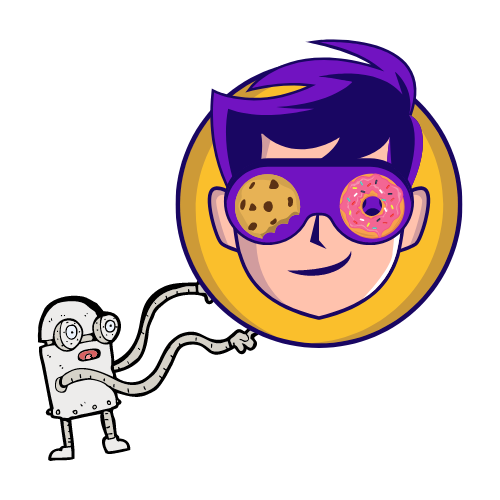


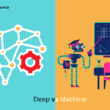
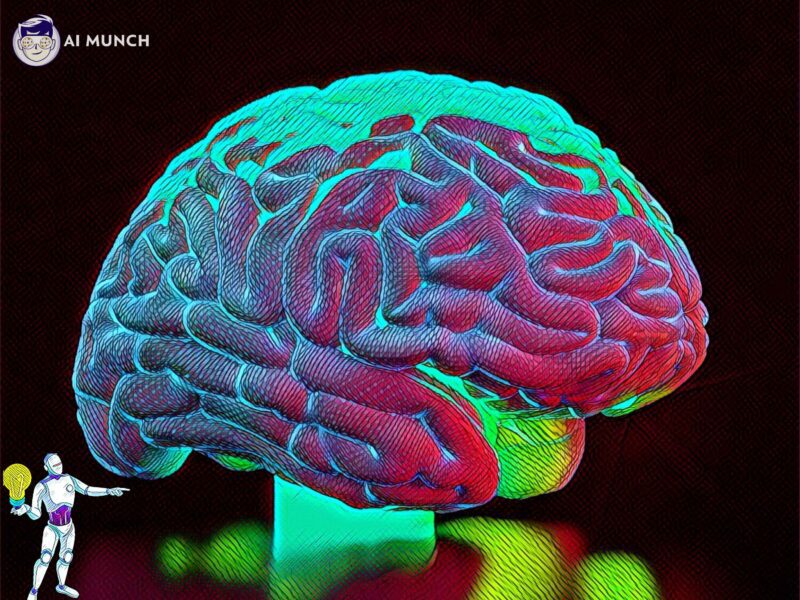


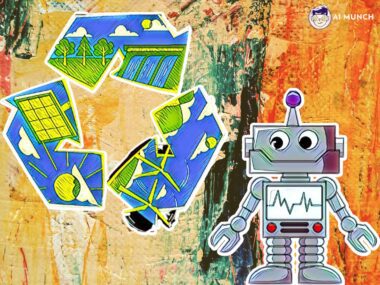

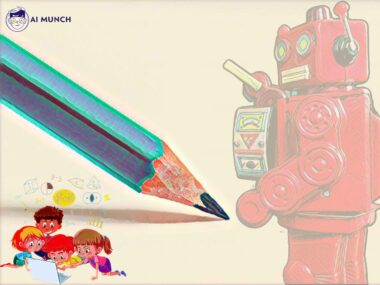

Have you ever thought about adding a little bit more than just
your articles? I mean, what you say is fundamental and everything.
However think of if you added some great
photos or video clips to give your posts more, “pop”! Your content is excellent but with pics and videos, this site
could certainly be one of the greatest in its field.
Awesome blog!
ok, thanks